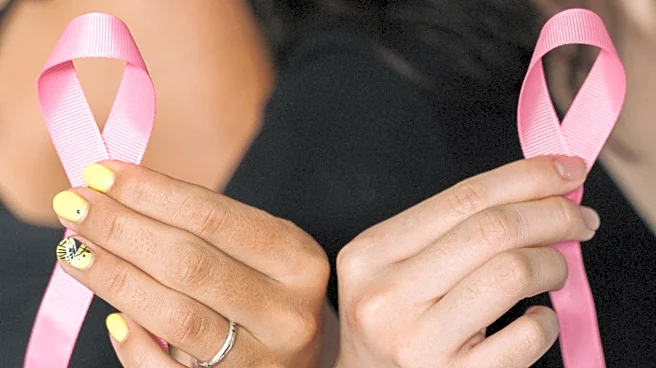What's Happening?
Cancer survivors are sharing advice on how to support friends undergoing cancer treatment. The guidance emphasizes practical support, such as offering to bring meals or help with household chores, rather than asking open-ended questions like 'What can I
do?' Survivors suggest specific offers, such as doing laundry or walking the dog, to alleviate the mental load on patients. Emotional support is also crucial, with roles like attending doctor's appointments to take notes and ask questions, or providing companionship during chemotherapy sessions. Survivors stress the importance of being present, advocating for the patient, and offering comfort through humor or prayer.
Why It's Important?
Supporting a friend with cancer can significantly impact their emotional and physical well-being. Practical assistance can reduce stress and help patients focus on recovery. Emotional support, such as companionship during treatment, can provide comfort and reduce feelings of isolation. By understanding the specific needs of cancer patients, friends and family can offer meaningful support that enhances the patient's quality of life. This approach also fosters a sense of community and shared responsibility, which can be beneficial for both the patient and their support network.
What's Next?
Friends and family members can continue to play vital roles in supporting loved ones with cancer by adopting these strategies. As cancer diagnoses are common, with 39% of Americans expected to be diagnosed at some point, these practices can be widely applied. The advice from survivors can be integrated into community support programs and healthcare settings to improve patient care. Additionally, ongoing conversations about effective support can lead to more tailored and compassionate approaches to helping cancer patients.
Beyond the Headlines
The advice from cancer survivors highlights the importance of empathy and proactive support in healthcare. It underscores the need for a shift from passive to active assistance, encouraging individuals to take initiative in offering help. This approach can lead to broader discussions about patient advocacy and the role of community in healthcare. It also raises awareness about the emotional and practical challenges faced by cancer patients, prompting more comprehensive support systems.















